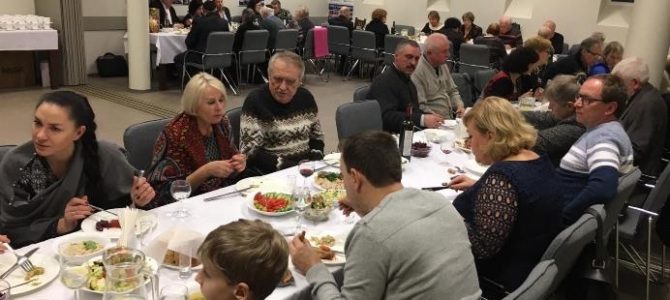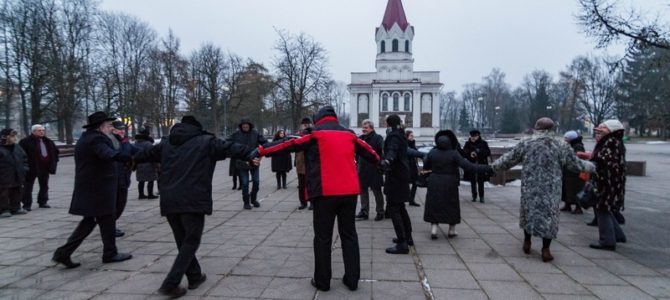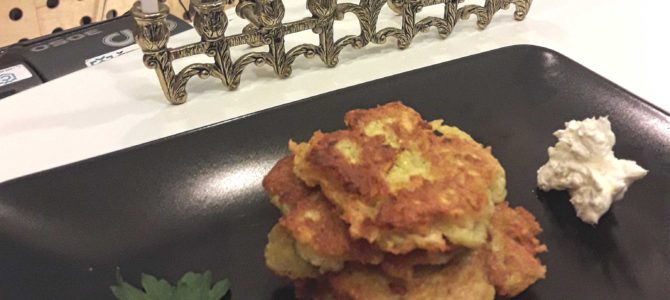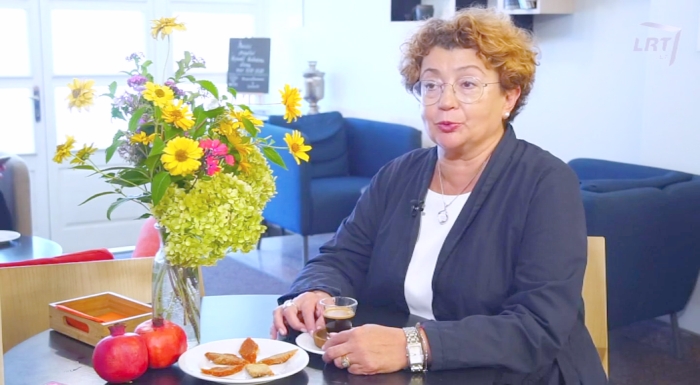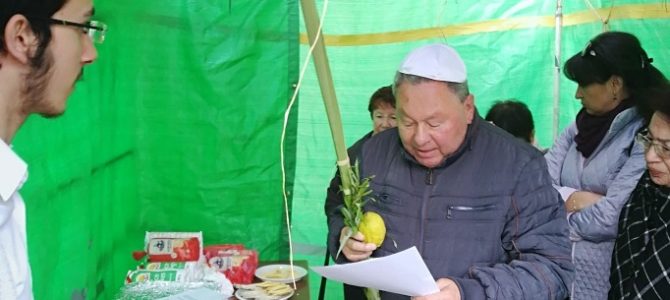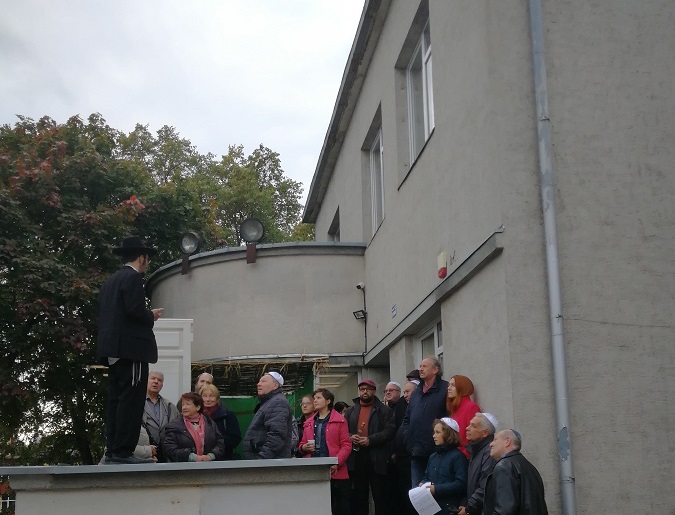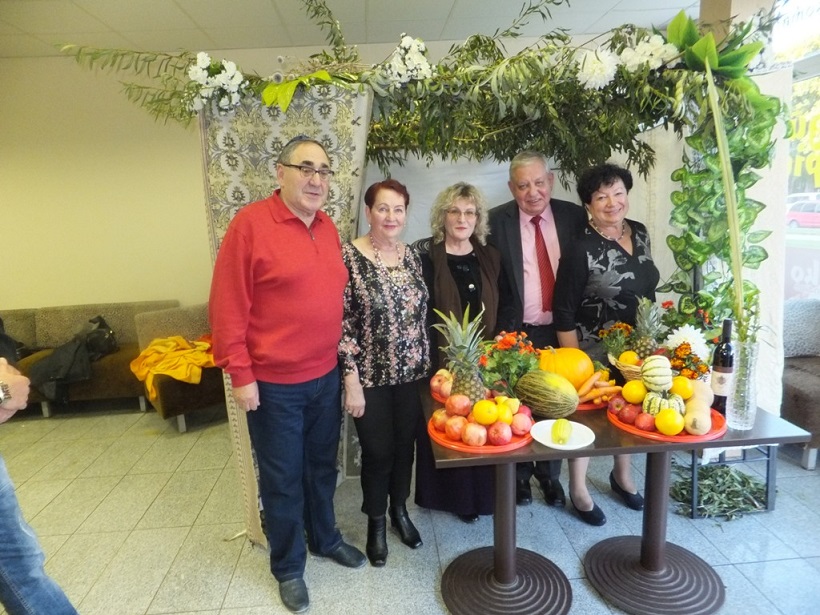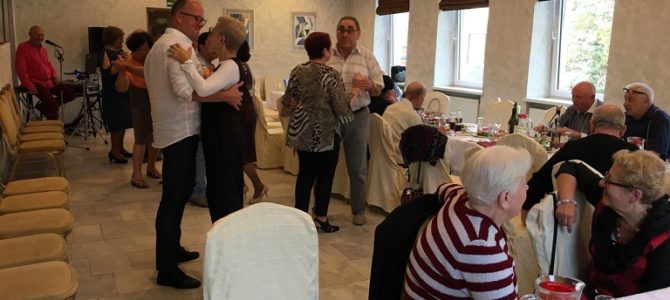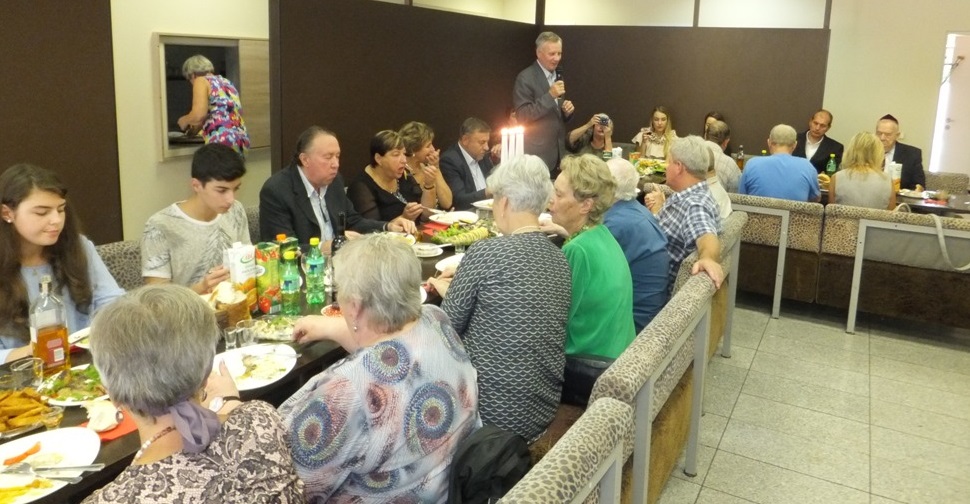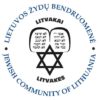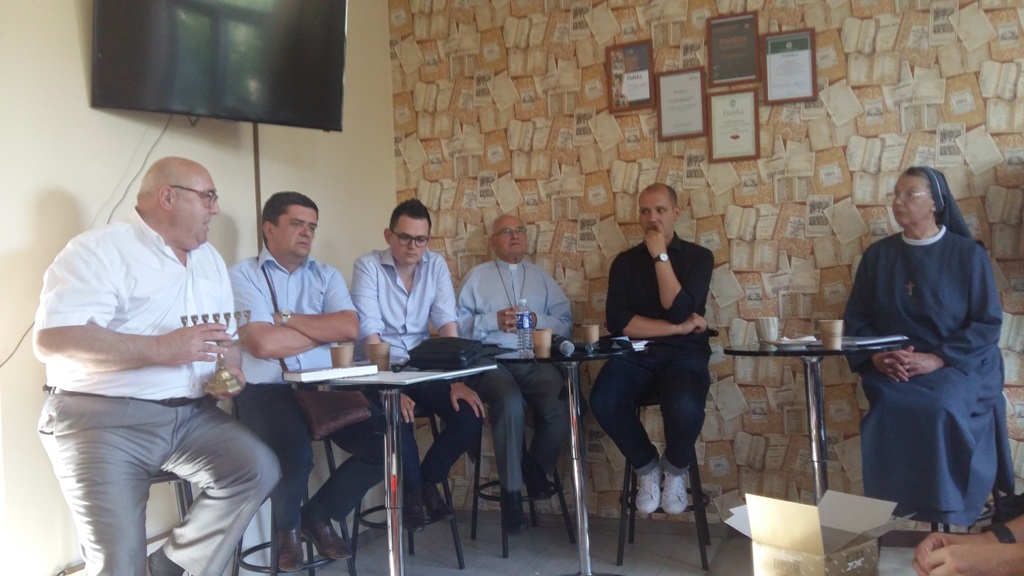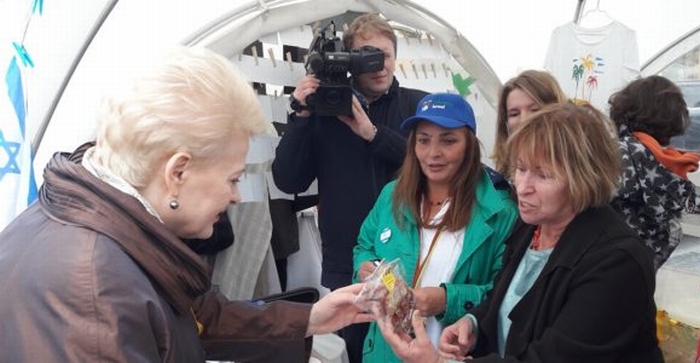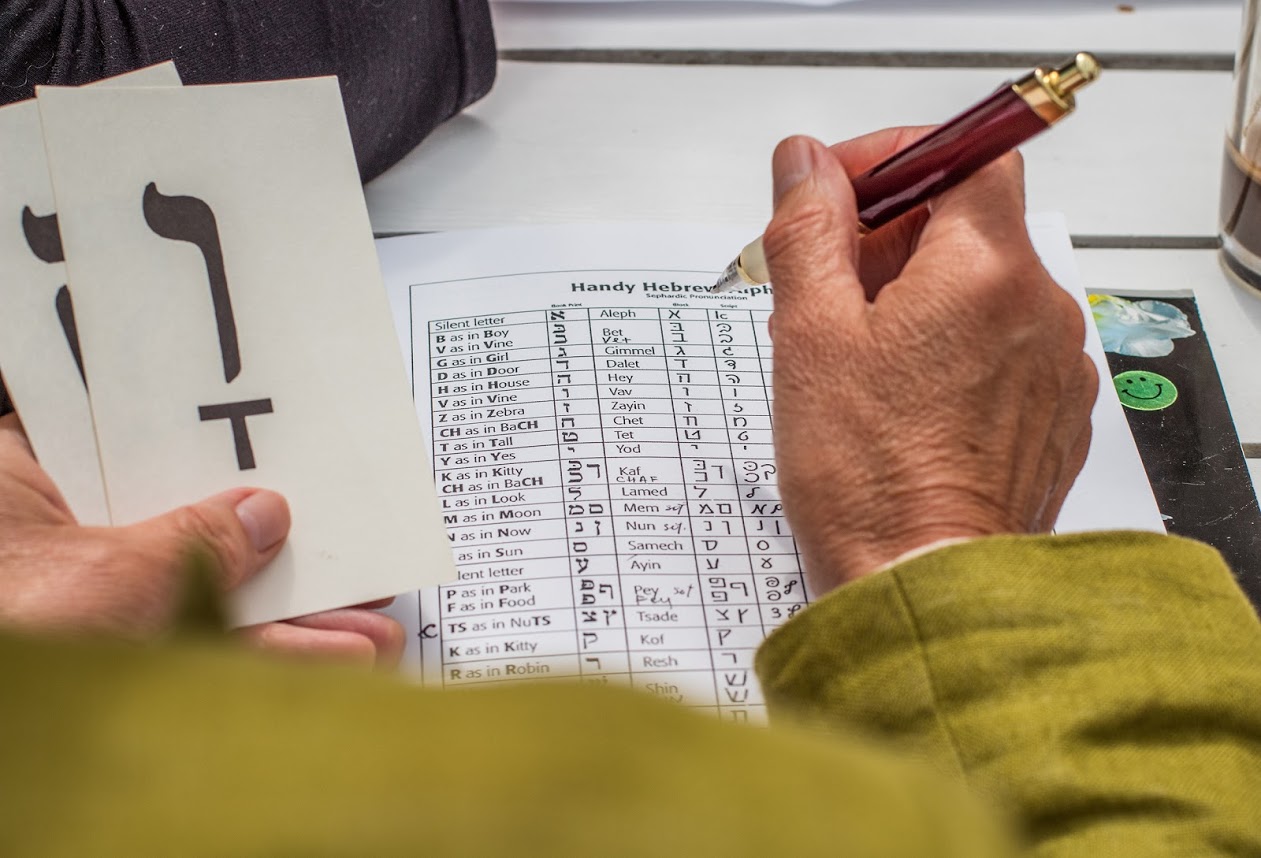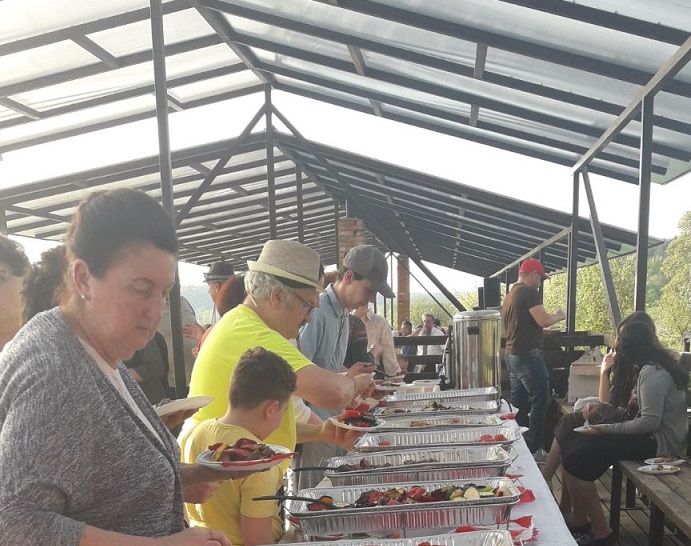In July the Lithuanian Jewish Community sponsored a day camp for members’ children aged 5 to 12. As every year, this year’s camp was held at a beautiful natural location, the Karvys manor in Paežeriai village in the Vilnius region.
Parents and children alike look forward to the camp and the experience of nature, relaxing by a lake and playing with friends. The day camp includes educational activities, walks and breakfast, lunch and dinner. Buses take the children to the camp in the morning and return them home in the evening. The day camps were held from July 16 to 27 this year. This year 49 children attended, from Lithuania, Israel, Russia, Norway, the USA and Great Britain. Children learned songs and Israeli dance, performed skits and learned to bake challa bread for Sabbath. The educational program included discussions about Jewish traditions, art, swimming, athletics and other activities.
Camp counselors took the campers to visit dog trainers and to meet with scouts in Labanoras Forest. The scouts talked about what it means to be a scout and everyone had a nice picnic by the lake.
Lithuania’s Russian Drama Theater actress Yuliana Volodko created a play with the children called Noah’s Ship which the children performed for parents at the closing ceremony. The play was followed by a Sabbath celebration with children and parents, attended by about 90 people in total. The closing ceremony featured cake and fireworks, and children made wishes and then released helium balloons.
Lithuanian Jewish Community chairwoman Faina Kukliansky thanks all the organizers, volunteers and guests who made this year’s Amehaye such a success, and also thanks the company Nikadita, the Bagel Shop Café and the Sluoksniai Café for their support and help.


